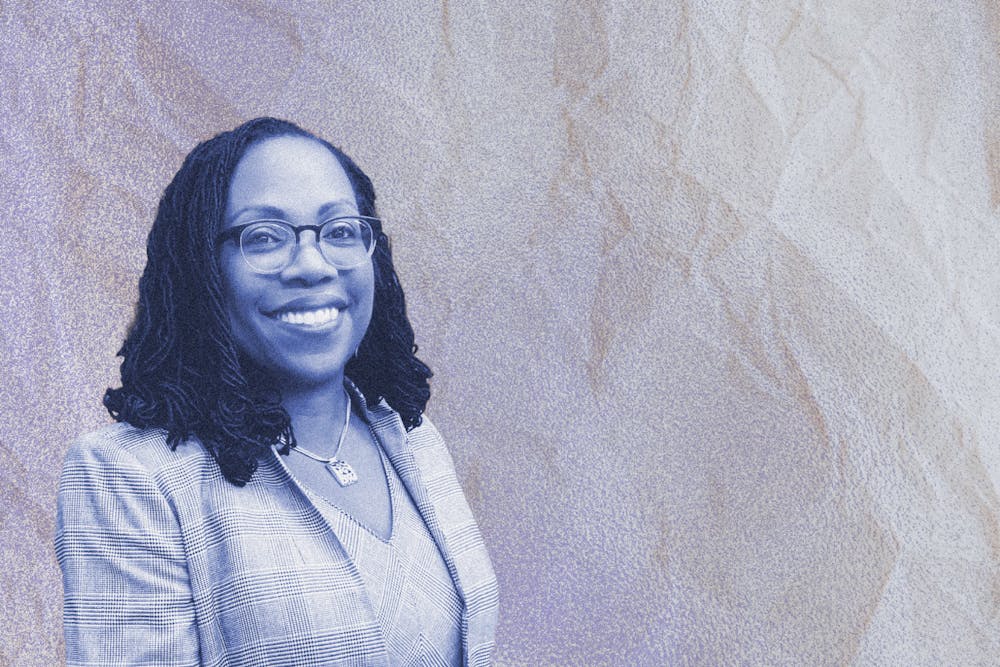When I watched clips of Judge Ketanji Brown Jackson’s confirmation hearings, I first took note of her calm way of responding to the Republican senators’ tricky questioning, a familiar experience for Black women dealing with white peers or superiors. And like many other Black women, I also took note of her hair.
Jackson has sisterlocks, a thinner version of traditional locs. The hairstyle, which requires a unique training method, was created in 1993 by Dr. JoAnne Cornwell for “women who are interested in self–empowerment and cultural self expression” and who want to “embrace a natural hair care system that is self–affirming.”
Natural Black hair is frequently deemed unprofessional. People with locs, specifically, face accusations of being unclean—such as when Zendaya wore faux locs to the Academy Awards in 2015, causing white talk show host Giuliana Rancic to joke that that Zendaya’s hair looked like it smelled like “patchouli oil and weed.”
I've had locs since I was 4 years old, and flippant comments such as these stuck with me. Though there has been somewhat of a revival of the natural hair movement in recent years due to social media, I grew up seeing few women with natural hair like mine. Growing up, I genuinely accepted that I'd have to wear a straighter hairstyle if I wanted to work in professional settings or be considered beautiful by societal standards.
In the Black community and outside of it, “good hair” is equivalent to "white hair," or at least the looser curls that are deemed more socially acceptable. According to Marita Golden, author of Me, My Hair and I: Twenty–Seven Women Untangle an Obsession, Black women in America today spend “half a trillion dollars a year on weaves, wigs, braids, and relaxers … and little Black girls still get the message that their hair needs to be tamed.”
The negative perception of natural Black hair is likely why some of the most influential Black female professionals and leaders—former First Lady Michelle Obama, Vice President Kamala Harris, and most mainstream, popular celebrities such as Kerry Washington—are seen with straightened hair. While a Black woman’s decision to wear her hair straightened is her own, as natural hair can be difficult to properly manage and maintain, natural hair was a rarity to see as a child when watching successful Black women on the news or on television.
Ketanji Brown Jackson—the first Black woman nominated to serve on the Supreme Court in United States history—wearing her natural hair is more meaningful than many non–Black people may recognize. Jackson’s hair is far from the only reason her nomination matters for Black women and the Black community as a whole, but the wide interest and coverage of her natural hair is more important than just a matter of hairstyle. Black hair symbolizes our cultural identity, our Black pride, and oftentimes our willingness to defy the beauty or professional standards traditionally expected of women.
The nomination of Jackson coincides with the House of Representatives’ passage of the CROWN (Creating a Respectful and Open World for Natural Hair) Act of 2022, which would prohibit discrimination based on hair texture. The act still has to pass the Senate, but it marks a considerable point of progress since the act was initially brought to Congress two years ago.
Moments of visibility brought on by leaders such as Ketanji Brown Jackson shouldn’t be as rare as they are. Furthermore, the CROWN Act shines a light on the importance of protecting against hair discrimination that has caused generations of Black women to shy away from embracing their natural curls. With Jackson’s extremely well–deserved nomination, notions of Black hair being unprofessional or otherwise transgressive are being shattered, setting a precedent that will allow more young Black girls to grow up knowing the inherent worth of their hair.







